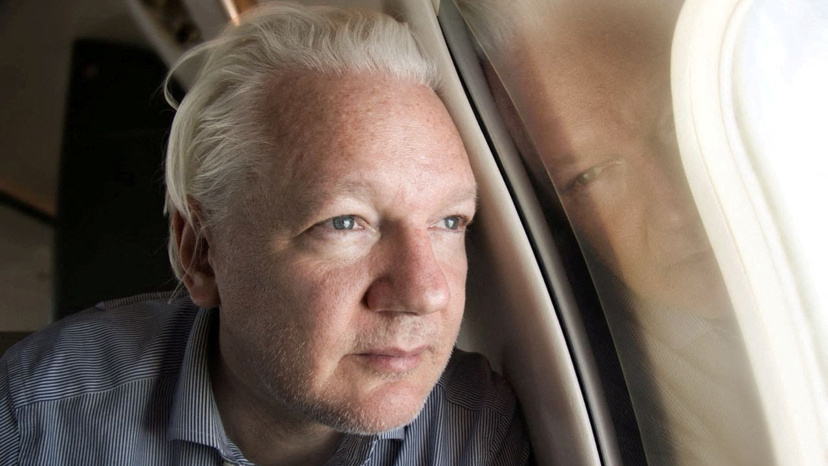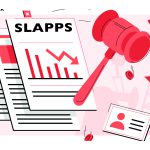WikiLeaks’ founder Julian Assange has been released from the UK’s Belmarsh high security prison and is back home free in Australia after making a plea deal with the United States justice department.
He pleaded guilty in a US court in Saipan on the Northern Mariana Islands in the western Pacific Ocean on June 26 to a single charge of conspiracy to obtain and disclose classified US national defence documents although the U.S. had originally sought his extradition from the UK to face 18 alleged charges.
Under the deal, the US justice department agreed to a sentence allowing for the time Assange has already served in a British prison. The U.S. is dropping all further extradition requests but Assange is prohibited from entering the United States without permission.
Australian Prime Minister Anthony Albanese welcomed Assange in Canberra.
He brokered the plea deal and has said he supported Assange because he believes in supporting Australian citizens.
He was also asked if he thinks Assange was a journalist wrongly imprisoned.
“There was no purpose to be served by this ongoing incarceration. And can I say that when I spoke with Mr Assange tonight, he described it as a surreal and happy moment. He’s landing here in our national capital, Canberra.”
The release and plea deal will not end the debate over media freedom issues inherent in the Assange case.
The head of the Committee to Protect Journalists Jodie Ginsberg said:
“Julian Assange faced a prosecution that had grave implications for journalists and press freedom worldwide. While we welcome the end of his detention, the U.S.’s pursuit of Assange has set a harmful legal precedent by opening the way for journalists to be tried under the Espionage Act if they receive classified material from whistleblowers. This should never have been the case.”
And David Greene, head of civil liberties at the Electronic Frontier Foundation, a nonprofit focused on American First Amendment issues, said:
“The United States has now, for the first time in the more than 100-year history of the Espionage Act, obtained an Espionage Act conviction for basic journalistic acts. These charges should never have been brought.”
In 2021, a coalition of civil liberties and human rights groups urged the Biden administration to drop its efforts to extradite him from Britain and prosecute him, calling the case “a grave threat” to press freedom.
Much of the conduct he was accused of is what “journalists engage in routinely,” the group contended.
“News organizations frequently and necessarily publish classified information in order to inform the public of matters of profound public significance.”
US officials argued that Assange’s actions went far beyond news gathering, putting at risk national security.
In 2019, a federal grand jury indicted Assange on 18 counts related to WikiLeaks’ dissemination of a broad array of national security documents including a trove of materials from Chelsea Manning, a former US Army intelligence analyst who handed over information about military planning and operations nearly a decade earlier.
U.S. prosecutors claimed the material from Ms. Manning endangered the lives of service members and Iraqis who worked with the military, and made it harder for the USA to counter external threats.
And the debate over media freedom and national security will continue.
Mike Pence, the former Republican and Trump vice president – who was the man who ratified the 2020 election against Trump’s wishes – described Assange’s plea deal as “a miscarriage of justice and dishonors the service and sacrifice of the men and women of our armed forces and their families.
“Julian Assange endangered the lives of our troops in a time of war and should have been prosecuted to the fullest extent of the law. There should be no plea deals to avoid prison for anyone that endangers the security of our military or the national security of the United States. Ever.”
James Clapper, the director of US national intelligence in 2010 when Assange and WikiLeaks published the secret US intelligence documents, said: “I actually think this came out pretty well … Critical to this was his plea of one count of espionage.
“He’s paid his dues. There was a damage assessment done at the time – there was concern but I don’t recall direct proof that assets in Afghanistan and Iraq supporting or helping the US were exposed.”
In the UK on May 20 the High Court ruled that Assange could appeal against his extradition to the United States because American assurances required by the court were unsatisfactory.
The High Court had previously said Assange “has a real prospect of success” and “an arguable case” on his appeal.
He has spent the last 5 years in UK prisons after being arrested when he was expelled from Ecuador’s London embassy after seven years fighting charges of rape and sexual assault in Sweden, which he denied. Sweden dropped their case in 2019.
Assange return to Australia – pictures
Assange return to Australia – timeline
United States justice department statement on Assange release
Julian Assange freed from UK prison after plea deal with USA
Assange standoff with USA ends – New York Times
Assange released – The Guardian
Questions remain over media freedom
Reaction to Assange release and plea deal
UK High Court allows Assange to appeal
Human rights and civil liberties groups call on U.S. to drop extradition case -2021
Sweden drops rape case against Assange – 2019








